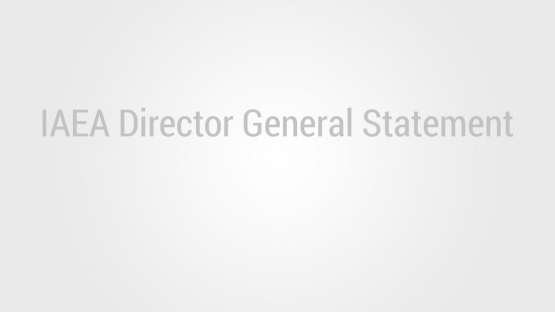Ladies and Gentlemen:
While most people now accept that there is climate change both due to natural and human causes, it is often hard to understand the connection of the issue to their personal lives. National leaders and policy-makers, in turn, realize that actions must be taken, but in many cases feel that the scientific basis is not clear enough upon which to base sometimes costly actions.
Understanding the world’s climate, its integrated hydrological, marine, climatic and terrestrial systems, is one of the most important issues and challenges of our time. The key knowledge for IAEA Member States is understanding the role that isotopic techniques can play in identifying pieces of the environmental change puzzle.
This makes your efforts to advance understanding and use of isotopic tools to investigate complex interactions of natural systems and the processes of environmental change all the more valuable. For this I commend your efforts. I ask you to continue to show where further work needs to be done; to point the way for taking action; and to develop new tools for monitoring and assessment.
The IAEA has a lead role in facilitating the development and dissemination of appropriate nuclear technologies for peaceful uses. While this has been largely a scientific and research based conference, I want to underline the importance of another important step, translating technology into a suitable framework for use in a development context, and its transfer to developing countries.
In this, I would like to challenge you as scientists, as leaders in the field of global change research, to also keep an important point in mind: how to translate your work to larger audiences and the community of interests in your respective countries and abroad.
Through its Technical Cooperation Programme, the IAEA has long worked to transfer mature technologies to its member states for, in particular, the evaluation, monitoring and assessment of environmental change and natural resources including freshwater, the marine environment and terrestrial ecosystems.
We foresee that the IAEA Member States will place increasing priority on natural resource management issues and seek the support of IAEA for acquiring the necessary tools, and perhaps more importantly, the human and institutional capacities to address pressing national natural resource management and environmental problems.
The IAEA has a special and unique role to play in this field: it has the capacity to facilitate the development, adaptation and validation of new techniques and scientific knowledge; and then transfer the products, to build technical competence in member states. Our current 2001-2002 TC programme, for example, has an increased number of activities to provide tools for freshwater management. We are in the process of identifying the nuclear and isotopic techniques that can help member states address key marine issues like coastal zone management.
In all of this, the IAEA is increasing its efforts to work with good partners, with both international organizations, as well as key national institutions, who can together, more effectively address these problems. You have been good partners this week.
In closing, I would like to thank you again for your excellent contributions. I would also like to ask you to continue your work, as well as to offer our continued partnership in the future for addressing these key issues of global relevance.


